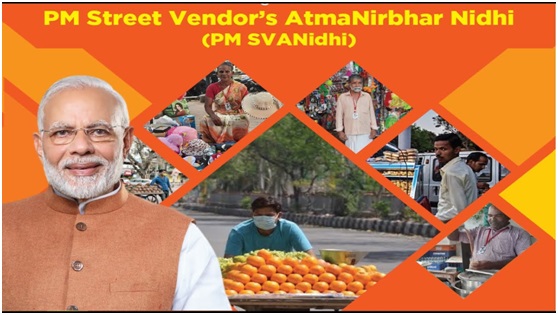Street Vendors (Protection of Livelihood and Regulation of Street Vending) Act, 2014

- 01 May 2024
Why is it in the News?
Enacted on May 1, 2014, after decades of advocacy, the Street Vendors Act has achieved progress yet faces implementation challenges in safeguarding vendors' livelihoods.
About Street Vendors (Protection of Livelihood and Regulation of Street Vending) Act, 2014:
- The Street Vendors (Protection of Livelihood and Regulation of Street Vending) Act, 2014 was enacted to legitimize the rights of street vendors (SVs) and regulate their activities.
- It is implemented by respective States/UTs by framing Rules, schemes, Bye-laws and Plan for Street Vending as per provisions of the Act.
- It seeks to safeguard and manage street vending in urban areas, with State-level regulations and initiatives overseen by Urban Local Bodies (ULBs) through the formulation of by-laws, urban planning, and regulatory measures.
- The Act clearly defines the roles and obligations of both vendors and various levels of government.
- One of the primary objectives of the Act is to ensure the inclusion of all "existing" vendors within designated vending zones by issuing vending certificates (VCs).
- It establishes Town Vending Committees (TVCs) as a mechanism for participatory governance, with street vendor representatives comprising 40% of the committee members, including a sub-representation of 33% for women SVs.
- These committees are tasked with overseeing the allocation of vending spaces and ensuring the representation of all existing vendors within vending zones.
- Moreover, the Act provides mechanisms for addressing grievances and disputes, proposing the establishment of Grievance Redressal Committees chaired by a civil judge or judicial magistrate.
- Additionally, it mandates that States/ULBs conduct surveys to identify street vendors at least once every five years, ensuring an updated understanding of the street vending landscape and facilitating effective regulatory measures.
PM Street Vendor’s AtmaNirbhar Nidhi (PM SVANidhi) Schemer (Indian Express)

- 03 Aug 2023
Why in the News?
The Union Housing and Urban Affairs Ministry has recently announced a fresh target for its PM SVANidhi scheme, focusing on empowering street vendors.
About PM Street Vendor’s AtmaNirbhar Nidhi (PM SVANidhi) Scheme:
- Launched on June 01, 2020, by the Ministry of Housing and Urban Affairs, the PM SVANidhi Scheme aims to assist street vendors affected by the Covid-19 lockdown in reviving their livelihoods.
- As a micro-credit initiative, it provides street vendors with a collateral-free loan of Rs. 10,000 at a low-interest rate (below 12%) for one year, facilitating their financial recovery.
- Originally scheduled until March 2022, the scheme has now been extended till December 2024 with a focus on expanding the affordable loan corpus, encouraging digital transactions, and promoting holistic socio-economic development for street vendors and their families.
- Eligibility for the loan requires street vendors who were vending on or before March 24, 2020, and hold a certificate of vending issued by the Town Vending Committees (comprising local authorities and vendors) after conducting a survey.
- The scheme offers several benefits, including an interest subsidy of 7% per annum on timely loan repayment, no penalty on early repayment, cash back incentives up to Rs. 100 per month to promote digital transactions, and the possibility of credit limit escalation for prompt loan repayment.
- The Small Industries Development Bank of India (SIDBI) serves as the implementation agency for the scheme, ensuring efficient delivery and monitoring of financial support to street vendors across the country.
